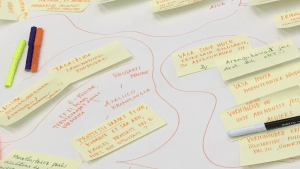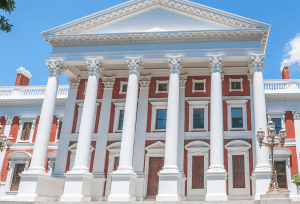Lessons from Reformers: South Africa’s Push for Open Access to Legislation
This case study is part of the Regulatory Governance in the Open Government Partnership publication.
 Regulatory Governance in the Open Government Partnership
When citizens understand and help to shape the rules that govern society, regulations are more effective, business environments are stronger, and levels of corruption are lower. This paper looks at…
Regulatory Governance in the Open Government Partnership
When citizens understand and help to shape the rules that govern society, regulations are more effective, business environments are stronger, and levels of corruption are lower. This paper looks at…
South Africa particularly benefited from providing open access to legislationCreating and passing legislation is one of the most effective ways of ensuring open government reforms have long-lasting effects on government practices. Technical specifications: Act of creating or r... and set an example that other countries can follow. When a government provides open access to laws, informed citizens become better equipped to participate in decisions demanded by a democratic system. During the apartheid era in South Africa, access to information on social and economic affairs was purposefully suppressed. Laws were published in the government gazette known as Staatskoerant with very limited access. Opposition groups severely criticized the general secrecy of government, which enabled the gross violation of human rightsAn essential part of open government includes protecting the sacred freedoms and rights of all citizens, including the most vulnerable groups, and holding those who violate human rights accountable. T....
After the election in 1994, the right to access information was embedded in the Constitution, and in 2001, the Promotion of Access to Information Act came into force. The act established the constitutional right of access to any information – held by the government or others – necessary for the exercise or protection of rights. Today, the South African government gazette makes legal texts available to the public in printed form as well as electronically and has played a key role in supporting democratic stability and promoting the rule of law in the country. Free access to information was crucial for educating political activists as well as civil society and bringing about positive political change in the country.1 Now all South African legislation is publicly available through the Parliament’s website.
1. Richard Calland, “The State of the Art and the Emerging Theory of Change, Introduction,” 2013, in Access to Information in Africa: Law, Culture and Practice, eds., R. Calland and F. Diallo (Brill Publishing).
Many thanks to former OGP Steering CommitteeThe Steering Committee is OGP’s executive decision-making body. Its role is to develop, promote and safeguard OGP’s values, principles and interests; establish OGP’s core ideas, policies, and ru... co-chair Mukelani Dimba for his contributions to this story.
Featured Photo: Parliament Building in Cape Town. Photo by dpreezq
No comments yet
Related Content

Regulatory Governance in the Open Government Partnership
When citizens understand and help to shape the rules that govern society, regulations are more effective, business environments are stronger, and levels of corruption are lower. This paper looks at…

Lessons from Reformers: Estonia Shifts from Online Consultation to Co-Creation
Learn how Estonia is opening up their regulatory processes to citizens through open government reforms.

Lessons from Reformers: Mexico Builds a Regulatory Ecosystem
Explore Mexico’s journey to building one of the most transparent regulatory systems in the world, and see how they’re leveraging the regulatory system during COVID-19.


Leave a Reply